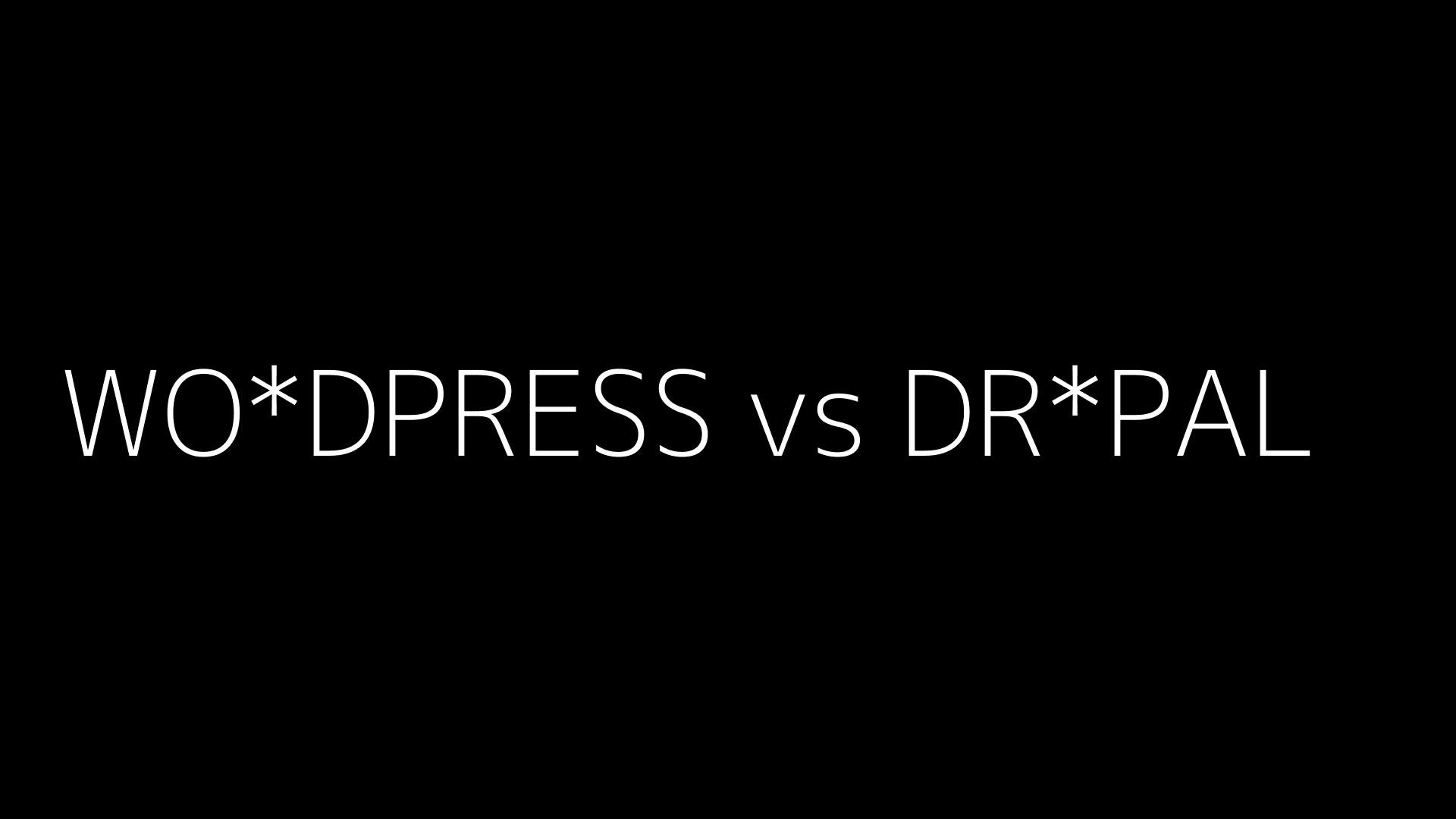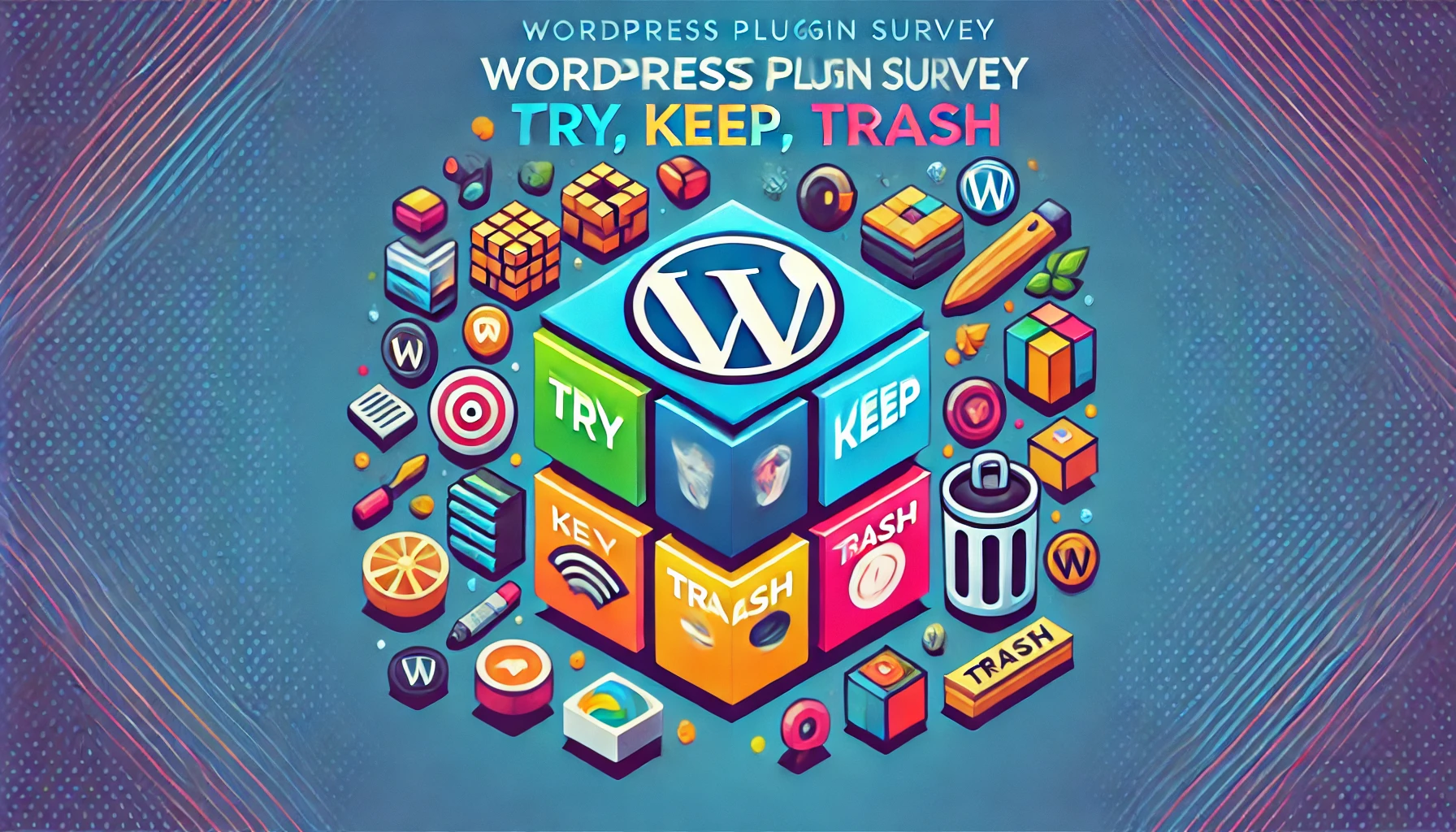Choosing the right content management system (CMS) is crucial for your website's success. With numerous options available, two of the most popular open-source platforms are Drupal and WordPress. Each has its strengths and weaknesses, making them suitable for different types of users and projects.
Selecting the appropriate CMS is not just about ease of use; it affects everything from site security and SEO capabilities to customization options and community support. A poor choice can lead to increased costs, development challenges, and an unsatisfactory user experience. Therefore, understanding the specific needs of your project and how different platforms align with those needs is essential for long-term success.
Herein, we’ll compare Drupal and WordPress, helping you determine which CMS platform aligns with your needs and preferences.
Ask yourself: Am I being calm and centered in challenging situations? What do I need to do to have more peace in my life?
What is Open Source CMS?
Open-source CMS software allows users to access and modify the source code, leading to greater flexibility and customization. This model fosters a community-driven approach, where developers continuously improve the platform, ensuring security and functionality. Notably, the concept of open-source began in the late 20th century, with early projects like Linux paving the way for collaborative software development. Both Drupal and WordPress benefit from being open-source, enabling a vast community of developers to contribute to their growth.
However, it’s important to distinguish open-source CMS from proprietary platforms like the ones mentioned below.
While these platforms offer user-friendly interfaces and managed services, they come with limitations on customization and flexibility. Users are often constrained to predefined templates and functionalities, making it difficult to adapt the platform to unique business needs. In contrast, open-source CMS platforms allow for extensive customization and control over your website's design and functionality, making them ideal for those seeking a tailored solution.
Examples of Non-Open Source CMS
Here are some popular non-open source CMS platforms:
- Shopify: Focused on e-commerce, Shopify offers a hosted solution with limited customization options.
Wix: A drag-and-drop website builder that provides ease of use but restricts flexibility and advanced features. (do not recommend - note editorial)- Squarespace: Known for its design templates, Squarespace limits customization to its built-in options.
- Adobe Experience Manager: A robust enterprise-level solution, but with a high cost and steep learning curve.
- Contentful: A headless CMS that offers a flexible API but lacks the user-friendliness of traditional CMS platforms.
These proprietary systems often serve specific niches well, but they may not meet the needs of users looking for full control and extensive customization.
Comparing Search Trends: Drupal vs. WordPress
Analyzing the Goggle Trends comparison between Drupal and WordPress reveals significant insights into the popularity and adoption rates of these two content management systems. Over time, WordPress consistently outpaces Drupal in search interest, highlighting its dominance in the CMS market.
Several factors contribute to this search trend disparity.
WordPress appeals to a broader audience due to its user-friendly interface and extensive resources available for beginners. The large ecosystem of themes and plugins allows users to easily customize their websites, making it attractive to bloggers, small businesses, and e-commerce sites.
Conversely, Drupal, while powerful and flexible, is often seen as more complex and is primarily targeted at developers and organizations with advanced needs. This complexity can limit its adoption among casual users who might prefer simpler alternatives.
The trend data also shows occasional spikes in interest for both platforms, often corresponding to major updates or events within their communities. However, the overall trajectory indicates a growing gap in popularity, with WordPress maintaining a stronger and more consistent interest over time.
In summary, while both platforms have their merits, WordPress's ease of use and extensive community support contribute significantly to its higher search interest, while Drupal remains a robust option for those seeking advanced features and customization.
Overview of WordPress
WordPress is the most widely used CMS globally, powering over 40% of all websites. Its user-friendly interface makes it an excellent choice for beginners and non-technical users. Here are some of the primary features that define WordPress:
- Ease of Use: WordPress’s intuitive dashboard allows users to create and manage content effortlessly, making it ideal for bloggers, small businesses, and e-commerce sites.
- Themes and Plugins: With thousands of themes and plugins available, users can easily customize their sites. Whether you need SEO tools, contact forms, or e-commerce capabilities, there’s a plugin for that.
- SEO-Friendly: WordPress has built-in SEO features and various plugins that enhance your website’s visibility on search engines, making it a great choice for content-driven sites.
However, a review of Google Trends reveals a slight decline in global searches for "WordPress" over time. This trend may be influenced by several factors.
First, the rise of alternative website builders such as Shopify and Squarespace (contextually, only mention two) has provided users with more accessible, user-friendly options that cater to those with limited technical skills. These platforms often emphasize drag-and-drop functionality, appealing to users looking for quick and easy solutions without the need for extensive setup.
Second, as technology evolves, the needs and expectations of website users are also changing. Many users are seeking faster, more responsive solutions that meet modern design standards, leading them to explore newer platforms that promise better performance and simplified management.
Additionally, as WordPress becomes more ubiquitous, it may be perceived as less innovative compared to emerging competitors, contributing to a decline in search interest. Despite these trends, WordPress remains a powerful tool for those who require extensive customization and control, making it a key player in the CMS landscape.
Overview of Drupal
Historically, Drupal was launched in 2001 as a message board tool. Over the years, it has evolved into a comprehensive CMS capable of powering complex websites and applications.
Drupal is a CMS that currently powers 2.2% of all known websites using a content management system. Over the years, this PHP-based software has continued to evolve, thanks to an expanding community of developers who have transformed it into an open-source project. Today, Drupal is available for free download under the GNU Public License.
Drupal is known for its robustness and flexibility, making it a favorite among developers and larger organizations. While it may have a steeper learning curve than WordPress, its capabilities are significant. Here are some features of Drupal:
- Customization and Scalability: Drupal is highly customizable, allowing for complex configurations and functionalities. This makes it suitable for large enterprises and community platforms.
- Advanced User Management: Drupal provides advanced user management features, allowing you to create complex user roles and permissions, essential for membership sites or enterprise applications.
- Security: Drupal has a strong reputation for security, making it a preferred choice for government and enterprise-level websites. Its dedicated security team regularly updates the platform to address vulnerabilities.
Today, Drupal continues to progress, with its community actively developing new features and improvements, ensuring it remains relevant in the CMS landscape. Users can expect ongoing enhancements in performance, security, and usability, making Drupal a strong choice for organizations that require robust, scalable solutions.
However, an analysis of Google Trends shows a decline in global searches for "Drupal." This trend may reflect several factors affecting its adoption rate. Firstly, the steeper learning curve associated with Drupal can deter less technical users who may opt for more user-friendly platforms like WordPress or newer solutions.
Additionally, the rise of proprietary website builders that emphasize ease of use may overshadow Drupal’s offerings, as more businesses look for quick, hassle-free setups. As companies increasingly seek agile development methods and simpler solutions, the demand for platforms that offer quick deployment without extensive coding can impact Drupal’s growth. Despite this decline in search interest, Drupal remains a powerful option for those needing advanced capabilities and flexibility, particularly in enterprise environments.
Key Comparisons
Ease of Use
WordPress excels in usability, making it a go-to choice for beginners. Its straightforward interface allows users to create posts and pages quickly. In contrast, Drupal requires a deeper understanding of web development, making it more suitable for those with technical skills or access to a developer.
Customization
Both platforms offer customization options, but in different ways. WordPress relies heavily on themes and plugins, which are easy to install and use. Drupal, however, offers a more flexible architecture, enabling developers to create tailored solutions from the ground up.
Security
While both CMS platforms take security seriously, Drupal is often considered more secure due to its stringent coding standards and regular security updates. However, WordPress can also be secure if properly maintained and equipped with reliable security plugins.
SEO Capabilities
WordPress has built-in SEO features and numerous plugins that enhance its SEO capabilities, making it an excellent choice for bloggers and content creators. Drupal also offers robust SEO features, but its setup may require more technical knowledge to optimize effectively.
Community Support
Both platforms boast active communities. WordPress has a vast user base, resulting in a wealth of tutorials, forums, and resources. Drupal, while smaller, has a dedicated community that provides specialized support, particularly for developers.
At least, but not last, ask: Which CMS is Better for You?
Ultimately, the choice between Drupal and WordPress depends on your specific needs and preferences. If you prioritize ease of use, a large selection of themes and plugins, and a quick setup, WordPress may be the better choice. On the other hand, if you require advanced customization, scalability, and robust security, Drupal might be the platform for you.
Regardless of your choice, both Drupal and WordPress are excellent open-source CMS options that can serve various purposes.
For professional guidance in managing and deploying Drupal or WordPress websites, contact us at Thelematics.com at CONNECT, 2u2 Web Technologies—your specialists in Drupal and WordPress management, deployment, and business development.
“ It always seems impossible until it is done. ” ― Nelson Mandela

SPACELAUNCH NOW!
Get Your Site Up & Running
SpaceLaunch is an ideal choice for those seeking to swiftly establish their own website, it offers a comprehensive and user-friendly solution backed by essential features, FREE domain registration / transfer / renewal, 1h FREE technical support to get you going, and the flexibility to grow and expand as needed (add-ons available).



